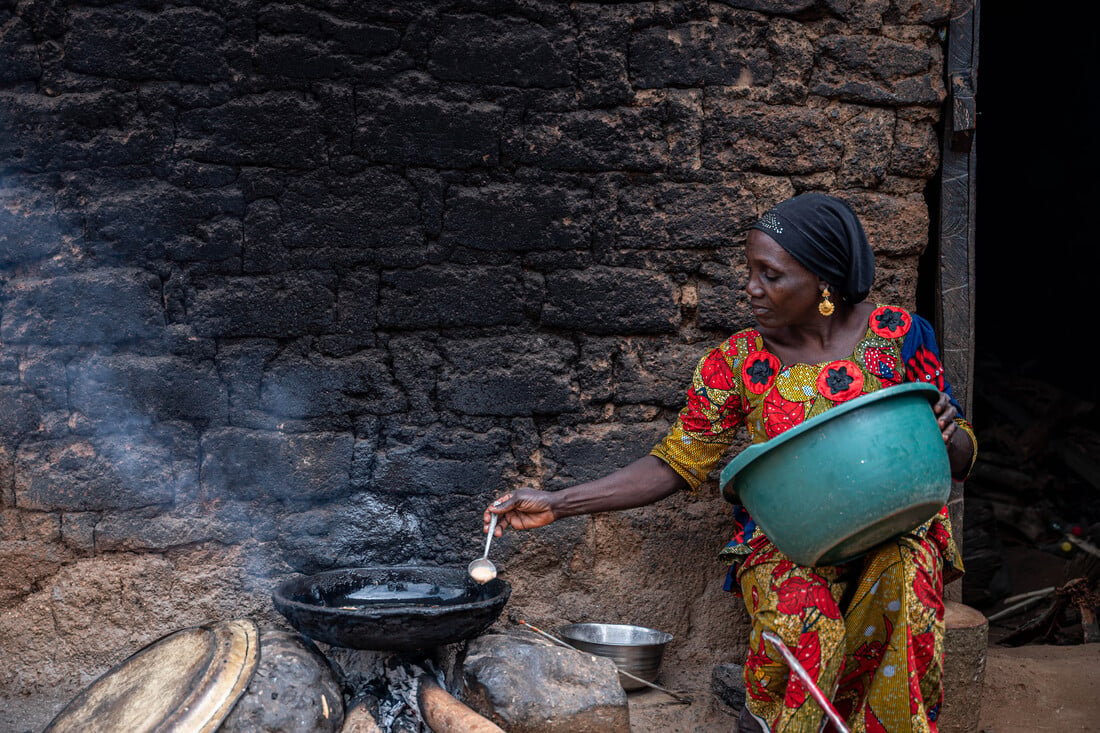From eye health, to Neglected Tropical Diseases, to the intersection of disability and climate, use our resource library to learn more about the range and scope of CBM’s work and the impact of what we do.
Filter results
Reducing Child Malnutrition Project Fact Sheet and Infographic
(PDF 1.99mb)
Amidst persistent climate-related challenges and a food shortage across the county, this project aimed to improve child health and nutrition outcomes, especially by supporting caregivers. Children with disabilities were directly targeted to ensure all children could benefit.
CBM UK Project Evidence Brief #10 – Reducing Child Malnutrition
(PDF 1.02mb)
This project aimed to address each of these three factors, and reduce child malnutrition, by providing supplementation for affected children, improving livelihoods, nutritional awareness and climate resilience for caregivers, as well as ensuring the inclusion of children with disabilities.
CBM UK Project Evidence Brief #9 – MhCAP-NTDs
(PDF 0.99mb)
The Strengthening Access to Mental Health Care for Persons Affected by NTDs (mhCAP-NTDs) project tested and evaluated the effects of a comprehensive intervention to address the mental health impact of skin NTDs.
Comprehensive child eye health in Nigeria
(PDF 1.08mb)
This report is part of the CBM Global Sustainability Enquiry series and explores the long-term impact of the Comprehensive Child Eye Health in Nigeria (CCEHiN) project, implemented by CBM UK between 2017 and 2020 under the global Seeing is Believing initiative.
Advancing disability inclusive climate action
(PDF 1.82mb)
This Resource Guide gives a clear, practical focus on how disability inclusion can be embedded across specific climate action sectors. It was developed jointly by the Global Disability Innovation Hub (GDI Hub) and the Inclusion Advisory Group (IAG), an initiative of CBM Global Disability Inclusion.
See the Way Malawi
(PDF 2.26mb)
This project sought to improve access to eye health care in the more remote central region of Malawi. In contexts where district hospitals lacked resources to treat common eye conditions, See the Way brought quality, trusted eye care services close to those who needed them.
CBM UK Project Evidence Brief #8 – See The Way Malawi
(PDF 0.62mb)
The “See the Way Malawi” project was designed to bring essential eye care services to those excluded from eye health provision in Malawi – including people with disabilities and people living in rural and more remote areas.
Locating Disability Inclusion in Climate Action
(PDF 1.13mb)
This policy paper sets out the inter-relationships between disability and climate change. It acknowledges that, in the context of climate change and climate crises, ‘leave no one behind’ is more than a phrase, it’s literally a matter of life or death for many people, and particularly for people with disabilities.
CiSKuLA Project Fact Sheet and Infographic
(PDF 1.03mb)
CiSKuLA supported 205 people affected by NTDs—mainly Lymphatic Filariasis and Onchocerciasis—through a holistic, inclusive, person-centred approach to health and wellbeing.
CBM UK Project Evidence Brief #7 – An inclusive and holistic approach to supporting people affected by Neglected Tropical Diseases
(PDF 0.42mb)
CiSKuLA delivered a comprehensive, person-centred and disability inclusive package of support combining integrated healthcare, economic empowerment, and inclusive Water, Sanitation and Hygiene (WASH) services.
Sustaining the impact of the Time to Change Global Pilot Programme
(PDF 2.1mb)
This CBM Global Sustainability Enquiry report assesses the long-term impact of the Time to Change Global (TTCG) Pilot Programme (2018–2020), which aimed to reduce mental health stigma across five countries.
UJJWAL: Disability Inclusive Livelihood Initiative in India
(PDF 2.82mb)
This document is part of the CBM Global Sustainability Enquiry series and provides an in-depth review of the UJJWAL project, a disability-inclusive livelihood initiative implemented in Madhya Pradesh, India, from 2016 to 2020.
